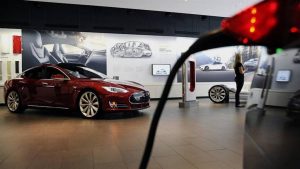India’s goal of moving completely to electric vehicles (EVs) by 2030, is facing severe challenges, including a lack of reserves for litium-ion components, such as lithium, cobalt and nickel, and uncoordinated efforts from various stakeholders, the government’s apex advisory body has warned.

In a report on Indian Energy Storage Mission, the National Institute for Transformation of India (NITI Aayog) said that “though global supplies of minerals for current battery chemistries are not considered to be resource challenged, processed functional materials used in anode and cathode offers a challenge”.
“To achieve large-scale domestic production of EVs, Indiawill need to forge international partnerships and joint ventures (JVs) to secure access to key materials in line with its own battery making technology and roadmap,” the report said.
According to the report, the ambition of 100 percent EVs by 2030 will require at least 3 500 GWh of capacity, entailing an estimated cost of $300-billion between now and 2030.
The Indian lithium requirement to meet the projected demand for EV batteries by 2030, as estimated by the advisory body, will be 60 000 t/y and, although this will be only 0.7 percent of total global reserves, there could be raw material shortages in the short term.
Citing several studies, NITI Aayog notes that while global supplies of lithium will outpace demand and India could ensure supplies through global partnerships and JVs, securing supplies of cobalt will be a more significant challenge given the resource’s geographical concentration and associated geopolitical risks.
Also noting the uncoordinated efforts of various stakeholders and relative nascent stage of battery manufacturing in India, investment risks in this sector and the absence of long-term policies there is a lot of uncertainties over domestic battery manufacturing.
Government officials have said that India has stepped up diplomatic initiatives to forge relations with the “lithium triangle” of Chile, Argentina and Bolivia. At its meetings with the Community of Latin American and Caribbean Nations, a two-stage proposal for JV in the host countries and long-term supply contracts for lithium at concessional rates have been discussed.





























